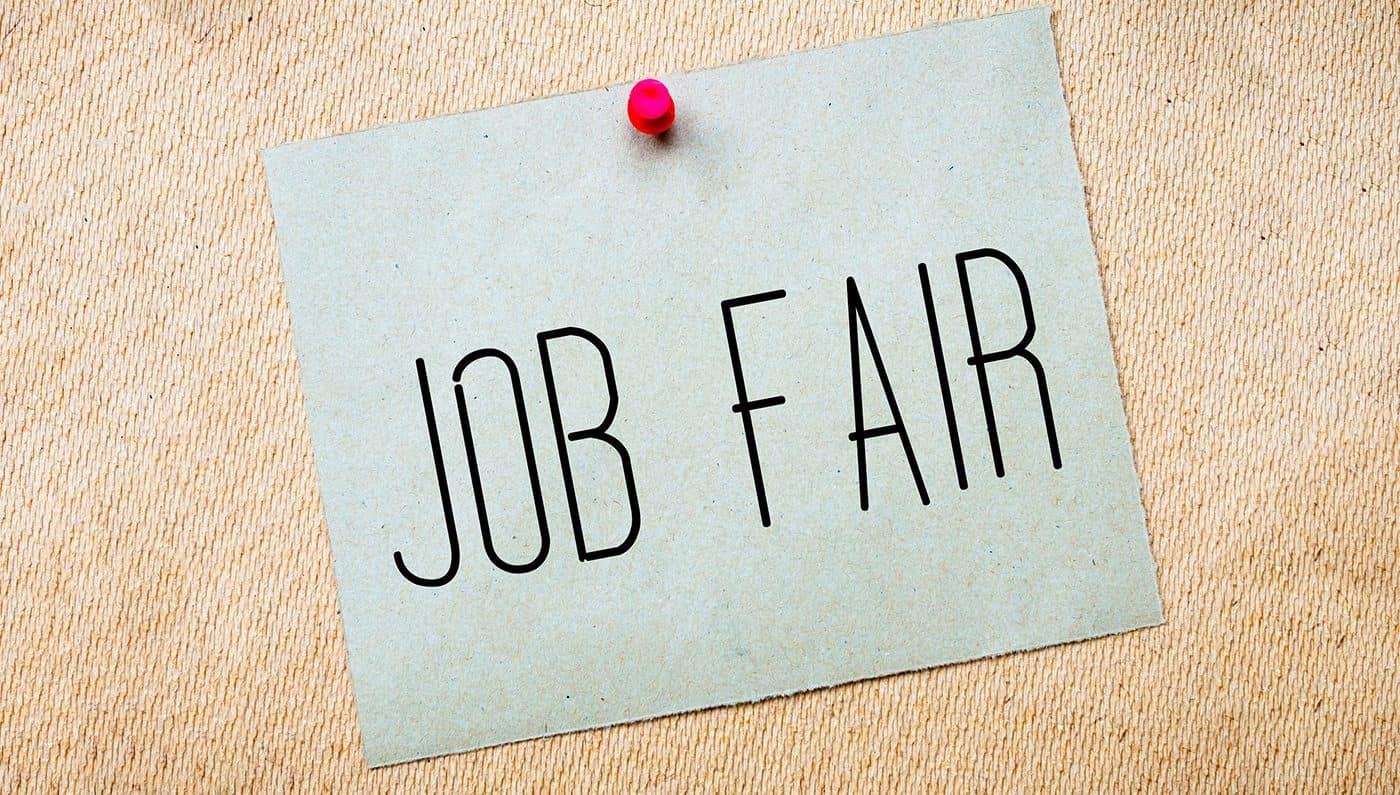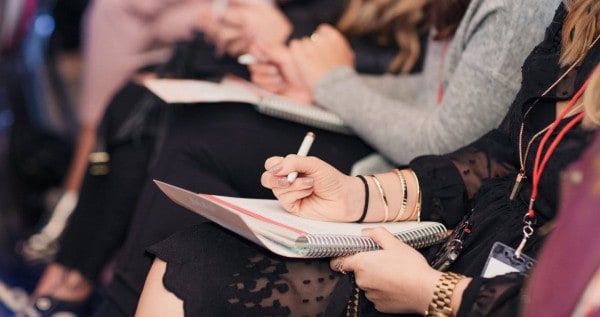Ask a Recruiter: Job Fairs 101

“Ask a Recruiter” is a new bi-weekly series where we sit down with a recruiting professional and ask our burning questions regarding topics like LinkedIn, resumes and cover letters, and job interviews.
Whether you’ve never been to a job fair and can’t imagine breaking out your best pencil skirt to talk to a bunch of strangers, or you’ve been and want to work on your elevator pitch game, we’ve got you covered. Melanie Clayton, HR Manager at Inuvo, has been in the recruiting field for 23 years — and it’s safe to say she’s been to her fair share of job fairs. She’s seen everything at job fairs, from students in pajamas to students in tuxedos — and she’s here to tell you how to get the most out of your job fair experience.
How many job fairs would you say you go to a year?
About 10-12. I go to five or six in the fall and fix or six in the spring. All types of job fairs as well as speed interviews.
What are speed interviews?
That’s where companies make a big circle, and the students get three minutes apiece to give an elevator speech. You get a flash drive with all the resumes, but you get a quick talk with them.
Why is it important to attend job fairs?
Two reasons. If you’re younger, it’s important to see what all is out there for you. Also, based on what skill sets companies are looking for, you can figure out which classes you need to take. For juniors and seniors, they can start seeing which companies are hiring for interns.
What kind of things should you prepare before attending a job fair?
I always say do your research before you go to a job fair so you can make the most of your time there. A lot of times I have a line of students waiting to talk to me — and they’re in-between classes, so we have to go fast. So they need to know who’s there beforehand and make a note of who they want to talk to. They need to go on that company’s website and see what jobs they’ve got open. So when you’re talking to a company, you can ask if the position has been filled and how you can apply. It’s the same for the companies there — before I go to a job fair, I make sure all of our jobs are posted on our website, and then I post them on the school’s website. So whether they look at our site or not, at least they’ll get it from their school.
Practice with your friends beforehand. If you have a hard time going up to people and talking, if you’re nervous, practice the night before. Your freshman year, get it out of the way. Go to one, get used to talking, get used to the questions they ask you. You’re never too young to start. Then by the time you’re a senior, you’ve got it down. You’ve got a chance to go to two a year. Every fall and every spring.
What questions should job seekers ask?
“What types of positions do you hire for?” “Do you hire interns?” “What kind of internship programs do you offer?” “Do you have any openings right now?”
What’s the most important thing job seekers should know before heading to a job fair?
I want them to know who they’re going to see. I want them to have a plan. Go in, get all the information you can, and get out.
What do recruiters look for at job fairs?
I look for eager students. I look for the ones who have done their homework. I look for that personality. You know when someone walks up to your table and you can tell that they’re ready. It’s very fulfilling for me to find those students. There’s been several I’ve hired, where you meet them, you have that connection, they get it. They get what the company does. And they seem professional — they’ve got their elevator speech prepared, their resume looks good. That’s what I’m looking for.
I also look for someone who will make eye contact with me and stand there and talk to me. A firm handshake — don’t cut my handshake off. Men do that and it drives me insane. I go in for the handshake, and they cut me off at the fingers. So it doesn’t have to be firm exactly; I just want a correct handshake.
This isn’t the time to be shy. It comes down to do you want a job? You have to suck it up and approach strangers and talk about yourself. And it’s okay to ask questions.
Is there such a thing as being too aggressive at job fairs?
Yes. Don’t come feeling entitled. And don’t complain about stuff. I’m gonna complain about complainers!
What’s the most common mistake you witness at job fairs?
Not having your resume on you. Another mistake I find is that some students will walk right past me — and they look like a deer in headlights. You can tell they don’t know what the company does. They obviously haven’t done the research on the companies that are there.
What should you bring with you to a job fair?
Several resumes. I’ll get your cover letter and references later if we’re interested in hiring you. I really just want to see what your major is, your education, all that.
What should you wear to a job fair?
I don’t expect students to have suits on. I know they’re in class all day. [If you come to the job fair] I know you’re in-between classes and you gotta walk five miles. So even if you’re in jeans, I’m not going to turn you away. But I would dress…business casual.
What should you not wear to a job fair?
Pajamas for sure. I’ve been at job fairs where people were in pajamas pretty much, no resumes in-hand. I’ve seen some over-the-top tuxedos. You don’t have to go that far with it. Just dress like you’re going to an interview. A job fair is basically a bunch of mini interviews.
How can someone stand out at a job fair (in a good way)?
You stand out when you do your homework. I’m gonna notice it.
What should an elevator pitch entail?
Just the gist. What are you looking for? Whether it’s an internship or a full-time position. I need to know what your major is, what year you are. Are you graduating?
What makes an elevator pitch stand out?
If they’ve got it down, you know it. If they can spill it — “My name is Joe, my major is this, I’m a senior, I’m looking to start full-time, I’ve already done a few internships.” You can tell the ones who have it down. And normally that’s a senior, because they’ve done it already. But you should already know what you want when you come to a job fair.
How do you get the most out of a job fair?
You meet as many companies as you can. Go in there, make a note of everyone you plan to go see. And then after the job fair, follow up with them. Let’s say you met 100 companies. Which five did you like the most? Apply for those. Because they just met 200 students, and sometimes it’s the first one to the plate.
What’s the best way a job seeker can follow up after a job fair?
They should go back through all the business cards, and then start hitting the job sites. They should go on the company’s website, see which available jobs they’re interested in, and email that person you have a card from. Say “Hey Melanie, I enjoyed meeting you, I looked on your website, I’d be very interested in these two open positions. What can I do to get an interview?” Those are the ones I’m probably gonna follow up on.
Follow Elise on Twitter: @elisewillrikard | Instagram: @elisewillrikard
Last modified on November 18th, 2019






Show Comments +